
INTERNATIONAL JOURNAL OF HEMATOLOGY
Scope & Guideline
Advancing the Science of Blood Health
Introduction
Aims and Scopes
- Hematological Malignancies:
The journal extensively covers research on hematological malignancies such as leukemia, lymphoma, and myeloma, focusing on their pathophysiology, diagnosis, and treatment strategies. - Bone Marrow and Stem Cell Transplantation:
A significant portion of the research is dedicated to the methodologies and outcomes of bone marrow and stem cell transplantation, including allogeneic and autologous transplants. - Coagulation Disorders:
The journal addresses various coagulation disorders, including hemophilia and thrombocytopenia, examining both the clinical implications and therapeutic approaches. - Transfusion Medicine:
Research related to blood transfusion practices, including safety and efficacy, is a core area of focus, highlighting advancements in transfusion strategies. - Genetic and Molecular Pathology:
There is a significant emphasis on the genetic and molecular aspects of hematological diseases, including studies on mutations, gene expression, and their implications for treatment. - Innovative Therapies and Clinical Trials:
The journal highlights the latest innovations in therapy, including novel drug therapies, immunotherapies, and clinical trial outcomes that impact patient care. - Patient Outcomes and Quality of Life:
Research evaluating patient outcomes, quality of life, and psychosocial aspects of living with hematological disorders is increasingly featured, emphasizing holistic care.
Trending and Emerging
- Precision Medicine:
There is a marked increase in research focusing on precision medicine approaches in hematology, tailoring treatments based on genetic and molecular profiling of patients. - Immunotherapy Developments:
Studies on immunotherapy, particularly CAR-T cell therapies and bispecific antibodies, are trending, reflecting a significant shift towards utilizing the immune system to combat hematological malignancies. - Real-World Evidence and Outcomes Research:
Research that provides real-world evidence on treatment effectiveness and patient outcomes is gaining traction, emphasizing the need for practical insights beyond clinical trial settings. - Molecular and Genetic Insights:
Emerging themes include detailed molecular and genetic analyses of hematological disorders, contributing to better understanding of disease mechanisms and targeted therapies. - Management of COVID-19 in Hematology Patients:
Given the global pandemic, there is a growing interest in understanding the implications of COVID-19 on patients with hematological conditions, including treatment adaptations and outcomes. - Patient-Centric Care and Quality of Life:
Research focusing on patient-reported outcomes and quality of life measures is increasingly emphasized, reflecting a broader understanding of patient experiences and needs.
Declining or Waning
- Traditional Chemotherapy Approaches:
There is a noticeable decrease in publications focused solely on traditional chemotherapy regimens, as the field increasingly shifts towards targeted therapies and personalized medicine. - Basic Hematology Research:
Basic research in hematology, particularly studies that do not translate into clinical applications, appears to be waning as the emphasis moves towards translational and clinical research. - Longitudinal Studies of Established Treatments:
Longitudinal studies examining established treatment regimens without new intervention strategies have become less frequent, possibly due to a focus on novel therapies. - Epidemiological Studies:
The publication of epidemiological studies related to hematological conditions has declined, potentially reflecting a shift towards more clinical and therapeutic research. - Animal Models in Hematology Research:
Research utilizing animal models for hematological studies is less frequently published, as there is a growing preference for human-centric clinical research.
Similar Journals
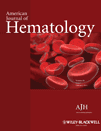
AMERICAN JOURNAL OF HEMATOLOGY
Connecting Scholars to Shape the Future of HematologyAmerican Journal of Hematology, published by Wiley, stands as a premier outlet for the dissemination of cutting-edge research in the field of hematology. With a commendable impact factor and ranked #9 out of 137 in the Scopus medicine category, this journal has established a robust presence since its inception in 1976. Operating in the Q1 quartile for hematology, it serves as a crucial resource for researchers, clinicians, and students dedicated to understanding blood disorders and advancing treatment methodologies. While the journal does not currently offer open access options, it remains highly regarded for its rigorous peer-review process and impactful contributions to the scientific community. With coverage extending into 2024, the American Journal of Hematology is committed to fostering innovation and collaboration within the hematological sciences.

HemaSphere
Connecting researchers, clinicians, and students in hematology.HemaSphere, published by WILEY, stands at the forefront of hematology research, offering a vital platform for the dissemination of cutting-edge findings in the field. Since its inception in 2017 and official transition to Open Access in 2018, the journal has positioned itself as a leading conduit for high-impact research, maintaining a prestigious Q1 quartile ranking in the Hematology category as of 2023. Addressed in the United States at 111 River St, Hoboken, NJ, HemaSphere aims to foster a global dialogue among researchers, clinicians, and students by providing unrestricted access to high-quality content that encompasses clinical and experimental advancements. With an array of engaging articles, reviews, and commentaries, HemaSphere contributes significantly to the advancement of hematology, ensuring that critical knowledge is readily accessible to enhance patient care and innovative research. To explore the latest developments and breakthroughs in this dynamic field, we invite scholars, professionals, and students to engage with HemaSphere and elevate their understanding of hematologic science.
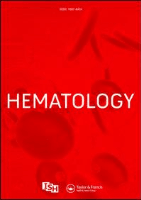
Hematology
Elevating Hematology: A Platform for Cutting-Edge ResearchHematology is a distinguished open-access journal published by Taylor & Francis Ltd, dedicated to advancing research and knowledge in the field of hematology. Established in 1996, the journal has continually evolved to meet the needs of a growing community of researchers and practitioners, providing a vital platform for disseminating innovative findings and clinical insights. With its impact factor reflecting a robust commitment to quality scholarship, Hematology has achieved a respectable position in its category as evidenced by its Q3 ranking in the Hematology category and ranks #85 out of 137 in the Scopus index, which positions it in the 38th percentile among its peers. The journal’s open-access policy, initiated in 2019, further enhances its reach and accessibility, allowing a broad audience of professionals, researchers, and students to engage with high-quality research without barriers. By covering a wide range of topics related to blood disorders, treatment methodologies, and emerging therapies, Hematology stands as an essential resource for those dedicated to innovation in this critical area of healthcare.
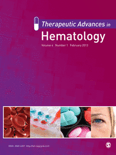
Therapeutic Advances in Hematology
Pioneering breakthroughs in blood health.Therapeutic Advances in Hematology is a prestigious, peer-reviewed journal dedicated to advancing the field of hematology through innovative research and clinical studies. Published by SAGE Publications Ltd, this journal has become a vital resource for hematology professionals and researchers since its inception in 2010. With its impactful Q1 ranking in Hematology and a Scopus rank of 62 out of 137, it firmly establishes itself as a leader in disseminating significant findings and therapeutic approaches. The journal has been committed to open access since 2019, ensuring that its cutting-edge research is readily available to the global scientific community. Covering a broad scope of topics within hematology, Therapeutic Advances in Hematology is an essential platform for those seeking to enhance their understanding and implementation of therapeutic practices in hematological conditions. The journal embraces submissions from both clinical and laboratory perspectives, fostering collaboration and dialogue among researchers, clinicians, and students alike.
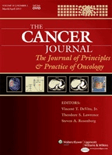
CANCER JOURNAL
Empowering Researchers to Combat Cancer Challenges.CANCER JOURNAL is a leading peer-reviewed publication dedicated to the dissemination of innovative research in the fields of cancer research and oncology. Published by Lippincott Williams & Wilkins, this journal serves as an essential resource for researchers, clinicians, and students seeking to advance their understanding of cancer mechanisms, treatment strategies, and patient care. With an ISSN of 1528-9117 and an E-ISSN of 1540-336X, it boasts a respectable 2023 Q2 category ranking in both Cancer Research and Oncology, reflecting its impactful contributions to the scientific community. Although it currently does not offer open access, the journal's rigorous peer-review process ensures the publication of high-quality, relevant studies that stimulate further investigation and collaboration among professionals. Since its inception, the journal has evolved through several converged years, maintaining a steadfast commitment to addressing the complexities of cancer biology and treatment. At its core, CANCER JOURNAL aims to foster advancements in oncology, making it a vital platform for sharing pivotal findings that could transform cancer research and therapeutic practices.
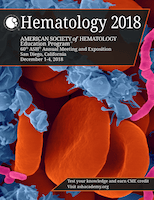
Hematology-American Society of Hematology Education Program
Exploring Innovations in Hematological ScienceHematology-American Society of Hematology Education Program is a premier peer-reviewed journal dedicated to advancing the field of hematology through comprehensive educational content. Published by the American Society of Hematology, this journal plays a crucial role in disseminating knowledge to researchers, clinicians, and students in hematology and related disciplines. With an impressive Q1 status in the field, it ranks among the top journals at the forefront of hematological research, as evidenced by its 60th percentile ranking in Scopus' Medicine - Hematology category. Although it does not offer open access, the journal provides invaluable insights and educational resources from leading experts, focusing on the latest advancements, treatment protocols, and evolving understanding of blood disorders. Covering a wide range of topics, from basic research to clinical applications, this journal is essential for anyone seeking to deepen their expertise and stay informed on the latest developments in hematology. For further engagement, readers can access insightful articles published since 2001, ensuring a rich repository of knowledge for ongoing research and clinical excellence.
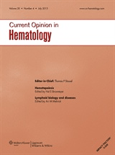
CURRENT OPINION IN HEMATOLOGY
Transforming contemporary issues into clinical solutions.CURRENT OPINION IN HEMATOLOGY is a leading peer-reviewed journal published by Lippincott Williams & Wilkins, focusing on the latest advancements and insights in the field of hematology. With an impressive impact factor and ranked in the first quartile (Q1) of its category, this journal serves as a vital resource for researchers, clinicians, and students seeking to stay informed on contemporary issues and emerging trends in hematological research and treatment. Established in 1994, it showcases critical reviews, expert commentary, and systematic analyses across a broad spectrum of hematology topics, contributing significantly to clinical and experimental knowledge through its robust editorial standards. While offering traditional subscription access, CURRENT OPINION IN HEMATOLOGY remains committed to providing a platform that bridges the gap between fundamental research and clinical application, making it indispensable for professionals dedicated to advancing patient care and scientific understanding in hematology.
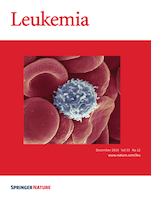
LEUKEMIA
Championing Excellence in Cancer ResearchLEUKEMIA, published by SpringerNature, is a premier journal in the field of hematology and oncology, with ISSN 0887-6924 and E-ISSN 1476-5551. Established in 1987, this esteemed publication serves as a critical platform for disseminating groundbreaking research and comprehensive reviews on the pathophysiology, diagnosis, and treatment of leukemia and related hematological disorders. With a distinguished impact, it holds a top-tier status in several categories, including Q1 rankings in Anesthesiology and Pain Medicine, Cancer Research, Hematology, and Oncology for 2023. The journal is globally recognized for its rigorous peer-review process and is highly regarded among academia, evidenced by its impressive Scopus rankings—7th in Hematology and 24th in Oncology. Researchers, clinicians, and students alike will benefit from the rich content that this journal offers, making it an invaluable resource in the fight against leukemia. The main objective of LEUKEMIA is to advance knowledge and encourage further innovations within the field, ensuring that vital insights reach practitioners and researchers around the world.
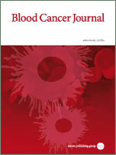
Blood Cancer Journal
Innovating research for a brighter future in blood cancer.Blood Cancer Journal, published by SPRINGERNATURE, is a leading open-access journal that has been at the forefront of hematology and oncology research since its inception in 2011. With an impressive impact factor and a commitment to disseminating high-quality research, it holds a prestigious Q1 ranking in both hematology and oncology categories as of 2023. The journal is dedicated to publishing innovative studies, comprehensive reviews, and insightful commentaries that advance our understanding of blood cancers, making it an essential resource for researchers, healthcare professionals, and students in the field. Its open-access model ensures that groundbreaking research is accessible to a global audience, promoting collaborative efforts to enhance treatment methodologies and patient outcomes. With a strong reputation illustrated by its Scopus rankings—8th in hematology and 30th in oncology—Blood Cancer Journal exemplifies excellence and leadership in the ever-evolving landscape of cancer research.

ACTA HAEMATOLOGICA
Elevating Research in Hematology and BeyondACTA HAEMATOLOGICA, published by KARGER, is a prestigious journal established in 1948, dedicated to the field of hematology and related medical sciences. With an ISSN of 0001-5792 and an E-ISSN of 1421-9662, this journal stands out with a Q2 ranking in both Hematology and Miscellaneous Medicine categories as of 2023. Researchers and professionals can benefit from its high-quality peer-reviewed articles, contributing to a more profound understanding and advancement of hematological practices. Although it does not offer open access options, ACTA HAEMATOLOGICA remains an essential resource for researchers in Switzerland and worldwide, providing critical insights and fostering discourse among academic and clinical communities. The journal's address is located in the heart of Basel, Switzerland, ensuring its robust connection to European medical research networks. With a firm commitment to excellence, this publication plays a vital role in disseminating knowledge, guiding future innovations in the field.